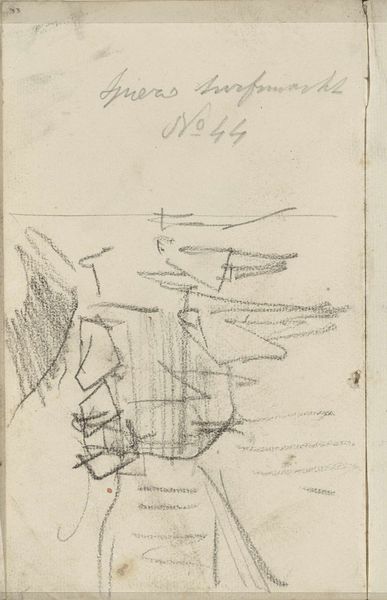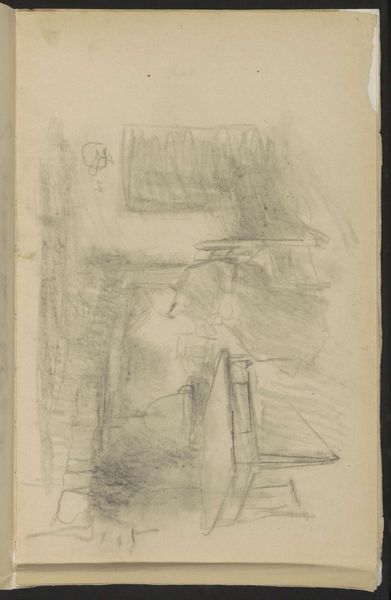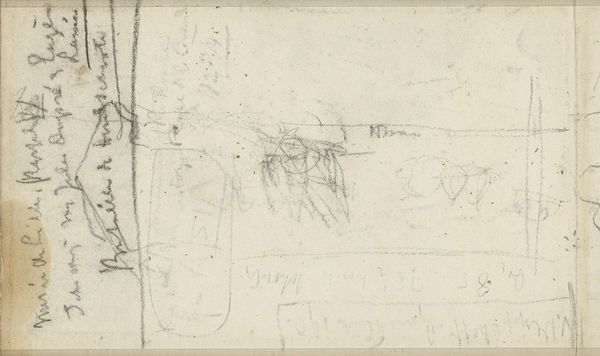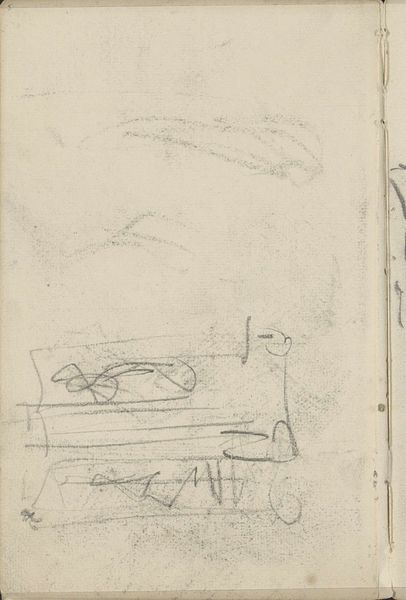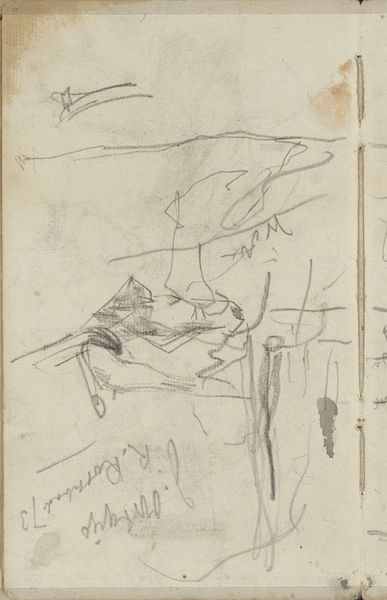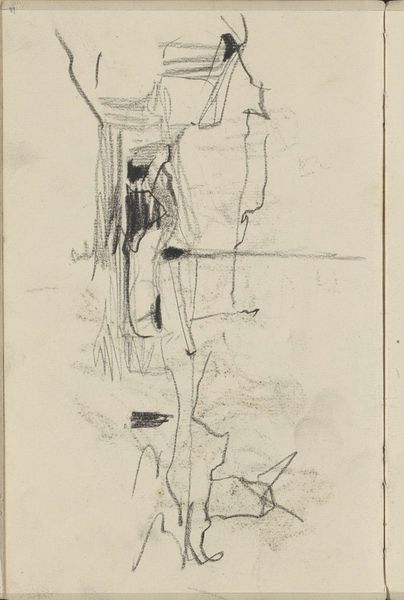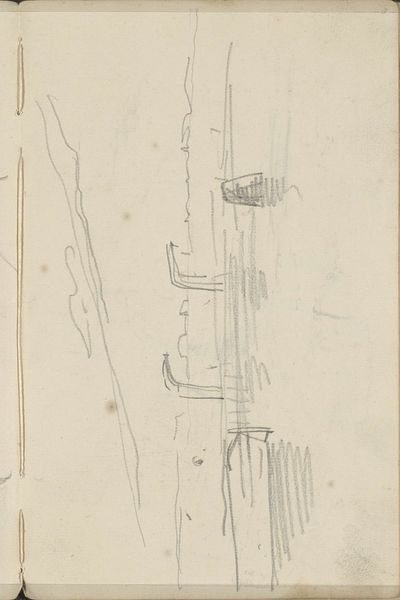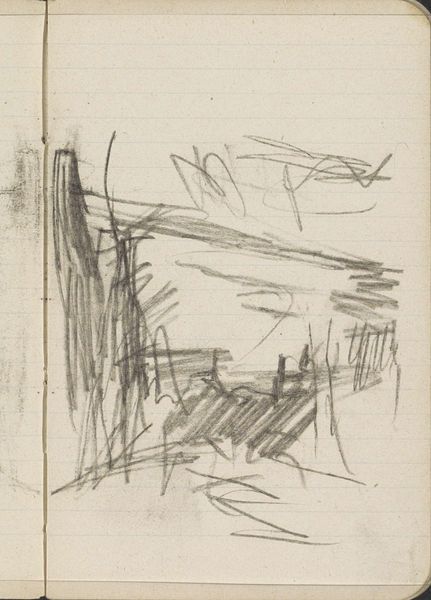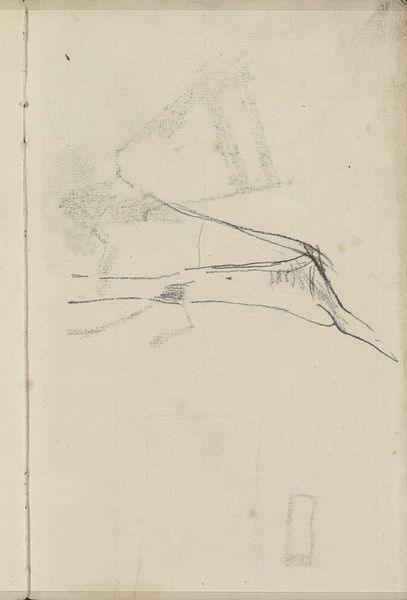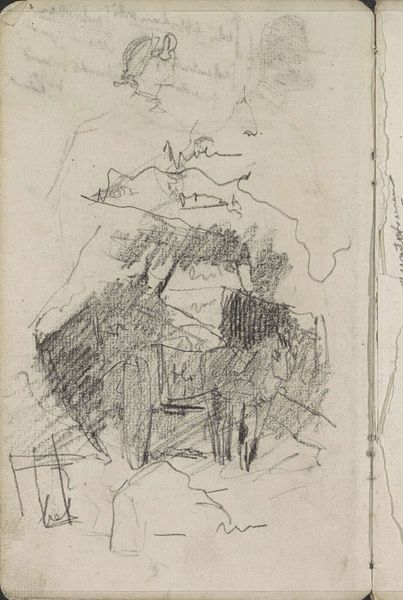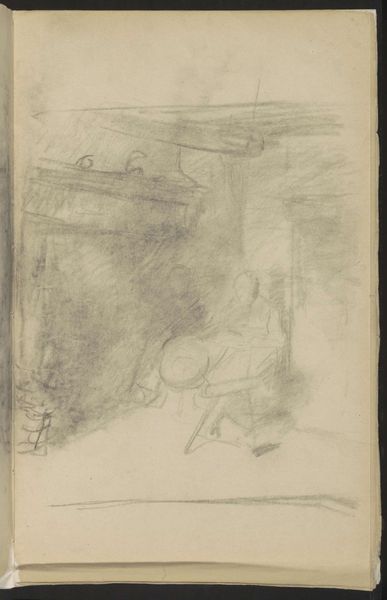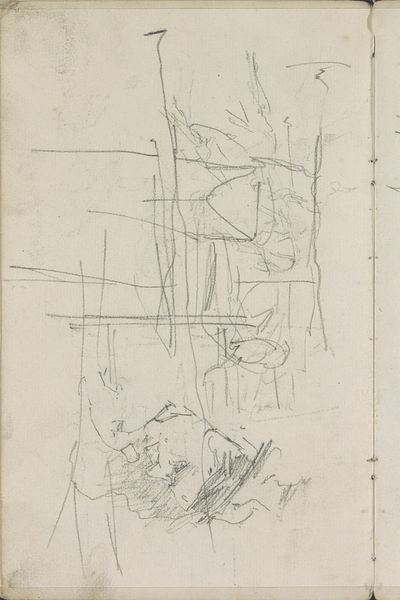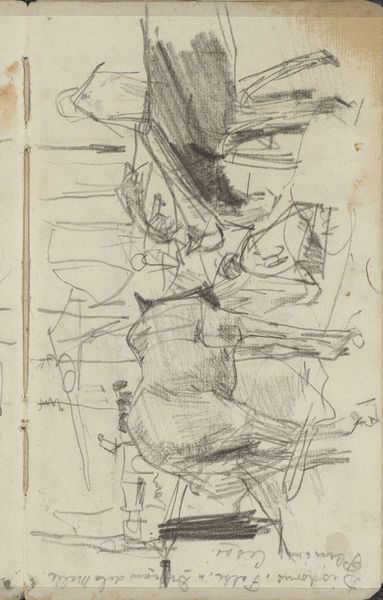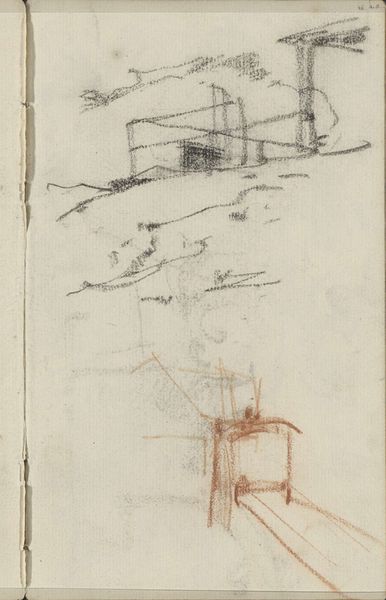
drawing, pencil, graphite
#
drawing
#
amateur sketch
#
toned paper
#
quirky sketch
#
impressionism
#
sketch book
#
incomplete sketchy
#
landscape
#
personal sketchbook
#
idea generation sketch
#
sketchwork
#
pencil
#
graphite
#
sketchbook drawing
#
sketchbook art
Copyright: Rijks Museum: Open Domain
Editor: Here we have "Ruiters, mogelijk soldaten" or "Riders, possibly soldiers," a graphite drawing by George Hendrik Breitner from the early 1880s. It's very raw, very gestural, like a quick glimpse caught in passing. What kind of story do you think this fleeting imagery tells? Curator: It’s fascinating how even incomplete sketches resonate with cultural memory. Consider the horse – it's always been linked to power, to conquest. The military context, however vague, adds a layer of potential conflict or control. It asks: Who are these figures? Are they protectors, invaders, or something in between? Editor: So you're saying the lack of detail almost forces us to project our own understanding onto the figures? Curator: Precisely. The artist provides a framework – horses, riders, possibly soldiers – but the emotional or narrative content is left open. We fill the void with our own associations and interpretations, reflecting our anxieties or ideals about power, conflict, or national identity. Even the hasty sketch conveys an element of urgency. Does it evoke any emotional reaction within you? Editor: I find it strangely haunting, like a faded photograph hinting at some long-forgotten drama. The incomplete nature suggests vulnerability. It makes you wonder what became of them. Curator: See how symbols, even fragmentary ones, persist in stirring feelings and questions? Art invites conversation, not just with the piece itself, but with our inner selves, too. Editor: It’s really amazing how a simple sketch can open up such a complex exploration. I definitely have a deeper appreciation for these 'incomplete sketchy' pieces. Curator: Indeed! Breitner prompts us to reconsider how much information we require to form connections with visual symbolism, both psychologically and culturally.
Comments
No comments
Be the first to comment and join the conversation on the ultimate creative platform.
